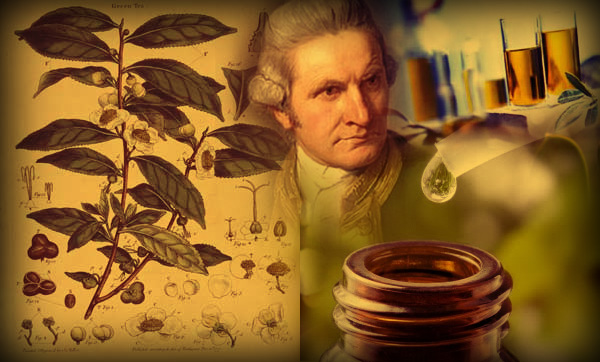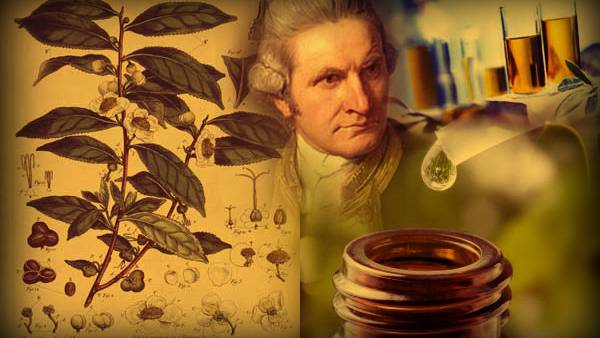Tea Tree Oil, The Australian Germicide

We are told that in 1732, Tea Tree Oil first came to the attention of western society when Captain James Cook landed in Australia. He brewed a spicy and refreshing tea from the leaves of the Melaleuca Alternifolia tree thus naming it the "Tea Tree."
Captain Cook met with the Aborigines and they shared their healing methods using this tree. Later, James Cook had a doctor test it, who confirmed its natural antiseptic power found in its leaves. Cook and his crew drank the tea to prevent scurvy.
In 1920, Dr. RA Penefold, a government chemist in Sydney, Australia, was credited for beginning the human clinical research of the many benefits associated with Tea Tree Oil. His studies determined that Tea Tree Oil had a Rideal-Walker co-efficient of between 11 and 13. This means the oil is 11 to 13 times more powerful than carbolic acid (phenol) for killing bacteria and fungi yet non-caustic to the skin.
In 1930, Mr. EM Humphrey identified that Tea Tree Oil's disinfectant action on the typhoid bacilli was sixty times greater than that of ordinary hand soap.
During World War II, the Australian army and navy incorporated Tea Tree Oil in first aid kits as an official germicide.
Eventually, synthetic penicillin gave rise to the absolute belief in modern drugs and natural medicine went into a decline. However, the knowledge of Tea Tree Oil was preserved and passed down.
Today, when you walk down the aisle of most health food stores, you'll find dozens of products containing Tea Tree Oil. Everything from the pure oil itself to bars of soap, creams, salves, throat lozenges, tooth pastes, dental floss, dental picks, lip balms, hair products, feminine hygiene, sunscreens and even suppositories. That is because it is one of nature's most impressive antiseptics, anti fungals and disinfectants.
The essential oil, extracted from the leaves of Melaleuca, has a camphor scent and a yellowish-green color. The main chemical components of Tea Tree Oil are Terpinen-4-ol, Cymene, Pinene, Terpinene, and Cineole. Use the oil to treat acne, skin infections, skin parasites, boils, sunburns, insect bites, bee stings, wounds, ear infections, poison ivy, yeast infections, herpes, warts, fungal nail infection, athlete's foot, hemorrhoids, lice, gum inflammation and reducing plaque. Tea Tree is also useful in killing stubborn germs such as staphylococcus aureus, pseudomonas aeruginosa and escherischia coli.
Be sure to buy 100% pure Tea Tree Oil. You may dilute it with an essential oil of your choice. Apply it to the problem area with a cotton puff or your hand 2-3 times a day until the condition heals. A few drops goes a long way!
As a mouth wash, mix the Tea Tree Oil diluted in water and swish with it. Be careful not to swallow it. Small amounts are not considered toxic, though the stomach might have a reaction to it.
It is also useful around the house. Add a teaspoon to the laundry for towels or other fabrics prone to mildew. Spray a solution of Tea Tree Oil and water on moldy surfaces in the bathroom. Also use the spray an a disinfectant on surfaces.
Bacteria, fungus, germs and parasites are indeed among us. It is nearly impossible to not be affected at one point in your life. If that time comes, use Tea Tree Oil.
More health articles






















